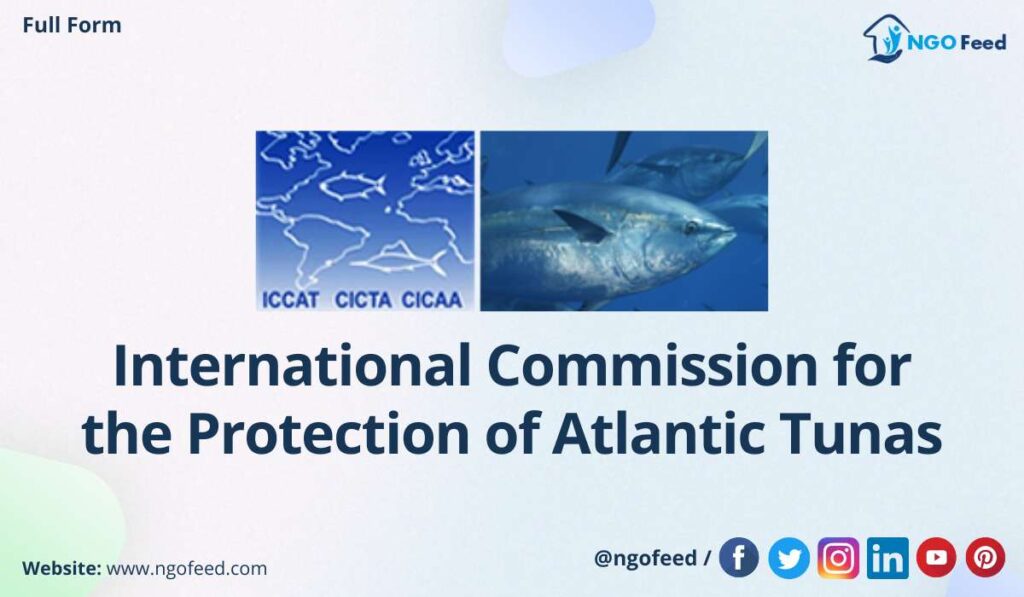The ICCAT Full Form is the International Commission for the Protection of Atlantic Tunas, an intergovernmental organisation, that is responsible for the management and conservation of tuna and species that are similar to tuna in the Atlantic Ocean and surrounding waters. The organisation was established in 1966 during a conference in Rio de Janeiro, Brazil. It operates in English, French, and Spanish.
Scientists have strongly criticised the organisation for continually encouraging overfishing while repeatedly failing to protect the sustainability of the tuna fishery. A “travesty of fisheries management” and an “international shame” have been used to describe an internal study of ICCAT’s policy on the eastern Atlantic bluefin tuna fishery. Environmentalists regularly refer to the International Conspiracy to Catch All Tuna (ICCAT).
But it seems like the company has changed recently. For the Eastern Bluefin Tuna, the most recognisable species covered by its protection, a very strict recovery strategy was developed. Although it is too soon to make predictions about the outcome, the early indications are promising. In general, it appears that the parties to the ICCAT contract have agreed to steer the organisation in a direction that is based on trustworthy science, requires compliance, and follows a respectable governance model.
ICCAT Overview
| ICCAT | International Commission for the Protection of Atlantic Tunas |
| Headquarters | Madrid, Spain |
| Formation | 1966 |
| Managing Director | Camille Jean Pierre Manel |
| Method | Social science research |
| Website | www.iccat.int |
| Official languages | English |
ICCAT Work
Participating scientists in ICCAT conduct research on biometry, fisheries ecology, and oceanography with an emphasis on how fishing affects tuna stock abundance. Additionally, they gather and examine statistics on fisheries that are related to resource management and environmental circumstances. Additionally, ICCAT is working on data for additional fish species that are caught as bycatch (mostly sharks) during tuna fishing in the Atlantic and nearby waters that are not being studied by another international fishery body.
Each year, the Commission decides on conservation and management measures aimed at maintaining target stocks at levels that permit the maximum sustainable catch for food and other purposes based on scientific and other information, including fishery statistics and stock assessments provided by members.
Species under ICCAT
- ICCAT manages 30 species of highly migratory fishes.
- Includes Atlantic bluefin tuna (Thunnus thynnus thynnus), yellowfin tuna (T. albacares), albacore tuna (T. alalunga), and bigeye tuna (T. obesus).
- Also manages billfish species like swordfish (Xiphias gladius), white marlin (Tetrapturus albidus), blue marlin (Makaira nigricans), and sailfish (Istiophorus albicans).
- Mackerel species under management include spotted Spanish mackerel (Scomberomorus maculatus) and king mackerel (S. cavalla).
- Additionally, manages small tunas like skipjack tuna (Katsuwonus pelamis).
Challenges
Environmental organisations frequently criticise ICCAT for its short-term policies that prioritise the interests of fishermen over the long-term preservation of the species.
The maximum sustainable yield for Atlantic bluefin tuna was determined to be 15,000 tonnes per year; nevertheless, in November 2008, ICCAT established quotas at 22,000 tonnes, disregarding the advice of their scientists.
According to an independent evaluation of ICCAT that was commissioned by the organisation, their policies regarding the eastern Atlantic bluefin tuna fishery are “a mockery of fisheries management” and “an international embarrassment.”
The European Union is directly responsible for today’s outcome, according to Dr Sergi Tudela, head of WWF Mediterranean’s fisheries programme. “Today’s outcome is a formula for economic as well as ecological bankruptcy,” he added.
Due to ICCAT’s run of failures, our only remaining alternative is to pursue effective redress through trade sanctions and a wider consumer, restaurant, and retail boycott.
The new deal was “a considerable improvement over the current standards, but it is insufficient to guarantee the long-term viability of either the species or the fishery,” the US National Oceanic and Atmospheric Administration (NOAA) stated in a statement that was harshly critical of it.
Conclusion
The International Commission for the Conservation of Atlantic Tunas (ICCAT) has begun to make progress toward its goals. It’s possible to handle tuna stocks well if we put more emphasis on scientific rigor, compliance, and responsible government. There is a move toward sustainability with the creation of tight recovery plans, especially for iconic species like the Eastern Bluefin Tuna. Although problems still exist, working together and believing in reliable science give us hope for the future of Atlantic tuna fishing.
Frequently Asked Questions (FAQs)
What is the ICCAT Full Form?
The ICCAT Full Form is the International Commission for the Protection of Atlantic Tunas.
When ICCAT is founded?
ICCAT is founded in 1966.
What is the purpose of ICCAT?
Fisheries is the purpose of this International organisation.

